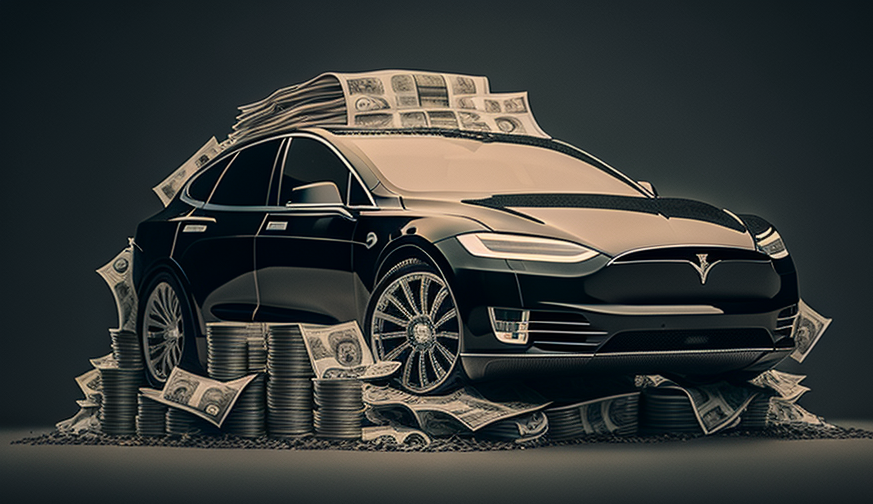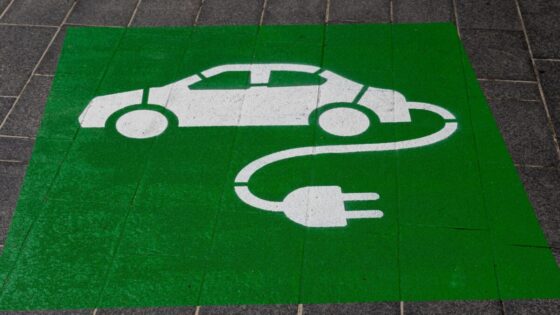Electric Vehicle Cost of Ownership: The True Expenses of Going Green

When considering buying a new car, the cost of ownership is an important factor to take into account. Total Cost of Ownership (TCO) is a tool that can help you compare the total expenses of owning and operating a vehicle over its lifespan. This includes the initial purchase price, depreciation, fuel, maintenance and repair costs, and more. By taking all these costs into account, you can get a better idea of how much a car will really cost you in the long run.
Using a TCO tool can help you estimate the true cost of owning and operating an electric vehicle (EV) versus a traditional gas-powered car. The tool takes into account several factors, such as the cost of electricity versus gas, as well as maintenance and repair costs for both types of vehicles. By comparing the TCO of an EV to that of a gas-powered car, you can get a better understanding of the financial implications of switching to an electric vehicle.
The Real Costs of Electric Car Ownership
Buying a new car is a significant expense, and electric cars are generally more expensive than gas-powered cars. However, the higher price tag of an EV can be offset by various factors, such as tax credits and fuel savings. Despite this, the steep depreciation of EVs is a factor that should be taken into account when considering the total cost of ownership.
Another cost to consider when owning an electric car is the battery replacement cost. While EV batteries are designed to last a long time, they will eventually need to be replaced, and the cost can be significant. However, advances in battery technology and increased competition in the EV market are helping to bring down the cost of replacement batteries.
Maintenance and repair costs for electric cars are generally lower than those of gas-powered cars. EVs have fewer moving parts and require less maintenance overall. Additionally, regenerative braking systems help to extend the life of brake pads, reducing the need for replacements.
Fuel costs are another major consideration when comparing the cost of owning an electric car to a gas-powered car. EVs are significantly cheaper to fuel than gas-powered cars, and the cost of electricity is generally more stable than the cost of gas. Additionally, if you have access to free charging stations or can charge your car at home, the cost savings can be even greater.
When it comes to charging an electric car, there are two main options: home charging and public charging. Home charging is generally the cheapest option, as you can take advantage of off-peak electricity rates and avoid the fees associated with public charging stations. However, if you need to charge your car on the go, public charging stations are an important consideration. Our article “How much does it cost to charge an EV?” provides more information on the costs associated with charging your electric car.
Bullet points:
- Electric cars are generally more expensive than gas-powered cars, but this can be offset by tax credits and fuel savings.
- EV batteries will eventually need to be replaced, and the cost can be significant.
- Advances in battery technology and increased competition in the EV market are helping to bring down the cost of replacement batteries.
- Maintenance and repair costs for electric cars are generally lower than those of gas-powered cars.
- EVs have fewer moving parts and require less maintenance overall.
- Regenerative braking systems help to extend the life of brake pads, reducing the need for replacements.
- EVs are significantly cheaper to fuel than gas-powered cars, and the cost of electricity is generally more stable than the cost of gas.
- Access to free charging stations or charging at home can increase cost savings.
- Home charging is generally cheaper than public charging, as it allows for off-peak electricity rates and avoids fees.
Total cost of ownership: How electric vehicles and ICE vehicles compare?
TCO (Total Cost of Ownership) is a financial tool that allows vehicle owners to compare the true costs of owning a vehicle over time. It factors in all expenses, including purchase price, depreciation, maintenance, repairs, and fuel costs, among others. By doing a TCO comparison, drivers can see which type of vehicle is more economical in the long run.
When comparing the TCO of electric vehicles (EVs) and internal combustion engine (ICE) vehicles, there are several cost elements to consider. One of the most significant differences between EVs and ICE vehicles is the fuel costs. EVs run on electricity, which is cheaper per mile than gasoline or diesel. On the other hand, ICE vehicles have better range and fueling convenience than EVs.
In addition to fuel costs, depreciation is a significant factor in the TCO comparison. EVs typically have higher upfront costs than ICE vehicles but depreciate at a slower rate. On the other hand, ICE vehicles have lower upfront costs but depreciate faster. Maintenance and repair costs also differ between the two vehicle types. EVs have fewer moving parts than ICE vehicles, which means fewer maintenance costs. However, when EVs need repair, the cost can be higher than ICE vehicles.
| Element | Electric Vehicles (EVs) | Internal Combustion Engine (ICE) Vehicles |
| Fuel Costs | Cheaper per mile | More expensive per mile |
| Range | Lower | Higher |
| Depreciation | Higher upfront cost but depreciates at a slower rate | Lower upfront cost but depreciates faster |
| Maintenance | Fewer moving parts, less maintenance cost | More moving parts, more maintenance cost |
| Repairs | More expensive than ICE vehicles | Less expensive than EVs |
| Energy Prices | Less affected by energy price increases | More affected by energy price increases |
The increase in energy prices can also have a significant impact on the TCO comparison between EVs and ICE vehicles. EV drivers are less affected by energy price increases than ICE vehicle drivers because electricity prices are less volatile than gasoline prices. The cost of gasoline can fluctuate wildly depending on supply and demand, geopolitical events, and natural disasters.
EV Operating Cost History
When it comes to the operating cost history of EVs, the trend is clear. EVs are becoming increasingly affordable to operate. In 2015, the average cost to operate an EV was $485 per year. In 2022, that number has dropped to $352 per year. In comparison, the average cost to operate an ICE vehicle is $1,117 per year.
By switching to an EV, drivers can save a significant amount of money on fuel costs. According to the U.S. Department of Energy, the average cost of electricity in the United States is 13 cents per kWh. If an EV driver uses 3.5 miles per kWh, the cost of driving 100 miles is around $3.71. In comparison, if a driver of an ICE vehicle gets 25 miles per gallon and gas costs $3.00 per gallon, the cost of driving 100 miles is $12.00.
When considering the operating cost of an EV, drivers should also think of their time as money. The convenience of charging an EV at home or work means that drivers save time by not having to stop at a gas station. Time is money, and the convenience factor of EVs can make them a more attractive option for busy drivers.
Another cost to consider when owning an EV is the replacement of the battery system. While the cost of batteries is dropping, it can still be a significant expense to replace a battery pack. However, most EV manufacturers offer warranties on their batteries that cover replacement costs for a certain number of years or miles.
FAQ
When it comes to electric vehicles, many people are curious about the costs of ownership. Here are some frequently asked questions and answers regarding the cost of owning an electric vehicle.
Generally, electric cars are more expensive than gas cars. However, with government incentives and fuel savings, the cost difference can be offset over time.
The cost of charging an electric car at home varies depending on the electricity rates and the battery capacity of the car. On average, it can cost anywhere from $0.08 to $0.25 per kWh, and the cost of a full charge can range from $5 to $20.
The cost of charging an electric car at a public charging station varies depending on the location and the charging speed. Some public charging stations are free, while others charge a fee per kWh or per hour of charging.
The lifespan of an electric car battery depends on several factors, including the make and model of the car, the driving habits of the owner, and the environmental conditions. On average, electric car batteries can last anywhere from 8 to 10 years.
The cost of replacing an electric car battery varies depending on the make and model of the car and the size of the battery. On average, a replacement battery can cost anywhere from $5,000 to $15,000.
In general, electric cars require less maintenance than gas cars because they have fewer moving parts. However, the cost of maintaining an electric car can vary depending on the make and model of the car and the owner’s driving habits.
Yes, electric cars are generally cheaper to operate than gas cars because the cost of electricity is lower than the cost of gasoline. Additionally, electric cars require less maintenance than gas cars, which can result in additional cost savings over time.
Yes, there are several tax incentives and rebates available for purchasing an electric car. These incentives vary by state and country, so it’s important to check with local government agencies for specific information.
Yes, you can install a charging station at your home if you have a dedicated parking space and access to an electrical outlet. It’s important to consult with an electrician to ensure that your home’s electrical system can support a charging station.



